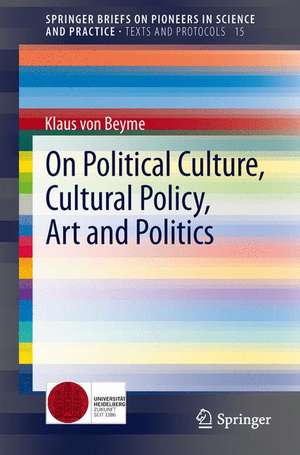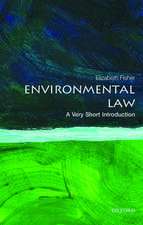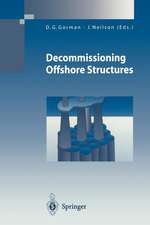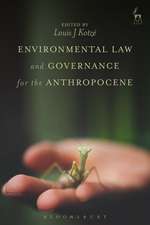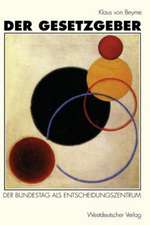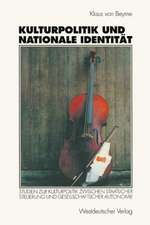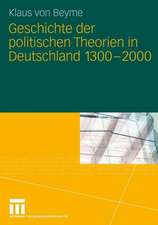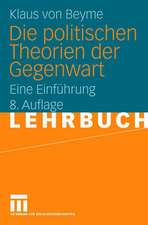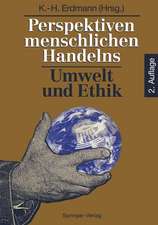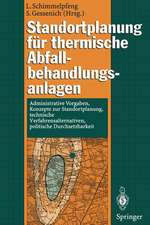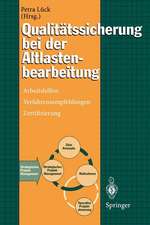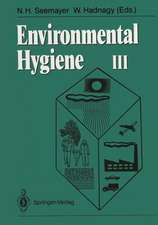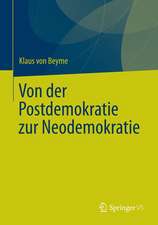On Political Culture, Cultural Policy, Art and Politics: SpringerBriefs on Pioneers in Science and Practice, cartea 15
Autor Klaus Beymeen Limba Engleză Paperback – 2 dec 2013
Din seria SpringerBriefs on Pioneers in Science and Practice
- 15%
 Preț: 469.74 lei
Preț: 469.74 lei -
 Preț: 380.63 lei
Preț: 380.63 lei -
 Preț: 385.08 lei
Preț: 385.08 lei -
 Preț: 383.50 lei
Preț: 383.50 lei -
 Preț: 381.00 lei
Preț: 381.00 lei -
 Preț: 380.07 lei
Preț: 380.07 lei -
 Preț: 382.18 lei
Preț: 382.18 lei -
 Preț: 382.75 lei
Preț: 382.75 lei -
 Preț: 381.98 lei
Preț: 381.98 lei -
 Preț: 380.25 lei
Preț: 380.25 lei -
 Preț: 381.98 lei
Preț: 381.98 lei -
 Preț: 381.00 lei
Preț: 381.00 lei -
 Preț: 380.07 lei
Preț: 380.07 lei -
 Preț: 381.98 lei
Preț: 381.98 lei -
 Preț: 410.77 lei
Preț: 410.77 lei -
 Preț: 381.98 lei
Preț: 381.98 lei -
 Preț: 381.00 lei
Preț: 381.00 lei -
 Preț: 382.18 lei
Preț: 382.18 lei -
 Preț: 381.43 lei
Preț: 381.43 lei -
 Preț: 381.98 lei
Preț: 381.98 lei -
 Preț: 449.74 lei
Preț: 449.74 lei -
 Preț: 384.86 lei
Preț: 384.86 lei -
 Preț: 381.98 lei
Preț: 381.98 lei -
 Preț: 453.39 lei
Preț: 453.39 lei -
 Preț: 177.88 lei
Preț: 177.88 lei -
 Preț: 259.79 lei
Preț: 259.79 lei -
 Preț: 382.75 lei
Preț: 382.75 lei -
 Preț: 175.58 lei
Preț: 175.58 lei -
 Preț: 381.21 lei
Preț: 381.21 lei - 15%
 Preț: 466.63 lei
Preț: 466.63 lei -
 Preț: 380.25 lei
Preț: 380.25 lei -
 Preț: 381.00 lei
Preț: 381.00 lei -
 Preț: 382.95 lei
Preț: 382.95 lei
Preț: 381.00 lei
Nou
Puncte Express: 572
Preț estimativ în valută:
72.92€ • 75.92$ • 61.62£
72.92€ • 75.92$ • 61.62£
Carte tipărită la comandă
Livrare economică 07-21 martie
Preluare comenzi: 021 569.72.76
Specificații
ISBN-13: 9783319015583
ISBN-10: 3319015583
Pagini: 150
Ilustrații: X, 159 p. 11 illus. in color.
Dimensiuni: 155 x 235 x 18 mm
Greutate: 0.25 kg
Ediția:2014
Editura: Springer International Publishing
Colecția Springer
Seriile SpringerBriefs on Pioneers in Science and Practice, Texts and Protocols
Locul publicării:Cham, Switzerland
ISBN-10: 3319015583
Pagini: 150
Ilustrații: X, 159 p. 11 illus. in color.
Dimensiuni: 155 x 235 x 18 mm
Greutate: 0.25 kg
Ediția:2014
Editura: Springer International Publishing
Colecția Springer
Seriile SpringerBriefs on Pioneers in Science and Practice, Texts and Protocols
Locul publicării:Cham, Switzerland
Public țintă
ResearchCuprins
Part I Transformation Theory.- Historical Memories in Political Theories.- Historical Memory in Nation-Building and the Building of ethnic Subsystems.- The Concept of Totalitarianism – A Reassessment after the Breakdown of Soviet Rule.- Political Culture – A Concept from Ideological Refutation to Acceptance in the Soviet Social Sciences.- Institutions and Political Culture in Post-Soviet Russia.- Political and Economic Consolidation in Eastern Europe.- Evidences from Empirical Data.- Part II Cultural Policies.- Why is there no Political Science of the Arts?.- Historical Memory and the Arts in the Era of the Avantgardes: Archaisme and Passéisme as a ‘passéisme of the future’.- Capital-building in Post-war Germany.
Notă biografică
Beyme has repeatedly been accorded recognition for his scientific activities, amongst others, in 1995 Honorary Membership of the Humboldt University in Berlin, in 1998 the University Medal of the University of Heidelberg, and in 2001 an Honorary Doctorate from the University of Bern. Furthermore, he is a Member of the Academia Europaea and the Berlin-Brandenburg Academy of Sciences. In 2008, he was honoured with the Schader Prize. On 2 September 2010 Beyme was honoured for his "enormous contribution to the development of Political Science in Europe and the entire world" and for his many years as Professor of Political Science at different universities around the world with an Honorary Professorship at Lomonosov University in Moscow. A study in 1998 ranked Beyme in the Top Ten of the world's Political Scientists.
Textul de pe ultima copertă
Klaus von Beyme is a distinguished German political scientist and recipient of the Mattei Dogan Award of Political Science (2012). In honour of his 80th birthday this book addresses political culture, cultural policy, art and politics. The first part on transformation theory analyses: “Historical Memories in Political Theories”, “Historical Memory in Nation-Building and the Building of Ethnic Subsystems”, “The Concept of Totalitarianism – A Reassessment After the Breakdown of Soviet Rule”, “Political Culture – A Concept from Ideological Refutation to Acceptance in the Soviet Social Sciences”, “Institutions and Political Culture in Post-Soviet Russia” and “Political and Economic Consolidation in Eastern Europe. Evidence from Empirical Data”. The second part on cultural policies addresses “Why is There No Political Science of the Arts?”, “Historical Memory and the Arts in the Era of the Avantgardes: Archaisme and Passéisme as a ‘passéisme of the future’”, and “Capital-building in Postwar Germany”.
Caracteristici
Most distinguished and highly awarded German political scientist Global pioneer in the study of political theory and comparative politics Innovative and original texts on: political culture, cultural policy, art and politics Includes supplementary material: sn.pub/extras
